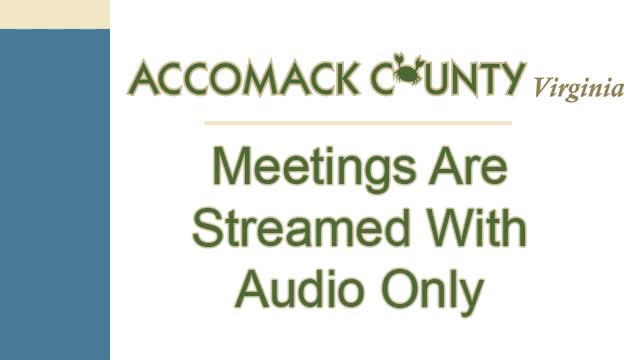Fire medics urge board to fix pay inequities as supervisors remove payroll-deduction language for further study
Get AI-powered insights, summaries, and transcripts
Subscribe
Summary
Acting union president for ACDPS outlined large pay disparities among medics; the board removed payroll-deduction language from personnel manual and sent it to the personnel committee for review rather than permanently eliminating payroll deductions at this meeting.
Members of the Accomack County Department of Public Safety told the Board of Supervisors the county should correct an apparent pattern of unequal pay among staff before removing a payroll-deduction mechanism the department uses to remit dues to its union.
At the public-comment portion of the board meeting, Seth Johnsack, who identified himself as acting fire medic II and president of the local International Association of Fire Fighters chapter, said several medics with equivalent certifications are being paid substantially less than peers'one paramedic reportedly making about $20,000 less than other paramedics. Johnsack asked only for a dialogue and for the county to resolve pay inequities; he said he and coworkers had raised the issue with human resources and county supervisors for the last 18 months without a specific resolution.
Why it matters: The request ties directly to personnel policies the board was considering on the consent agenda. The personnel committee and county attorney advised the board that payroll deductions for union dues can create the appearance the county recognizes collective bargaining; county counsel recommended removing the payroll-deduction language from the county personnel manual to avoid that implication. Staff and some supervisors said the move is not punitive and employees can pay dues directly.
Board action and next steps
- The board removed consent-item 5.6 (personnel policies 419 and 421 related to payroll deductions) from the consent agenda for separate discussion and ultimately voted to refer the matter to the personnel committee (motion carried). The personnel committee was asked to review the language and return recommendations to the full board. (Provenance: discussion at s=743.715'referral motion s=1452.75.)
- Supervisor discussion: Supervisors expressed differing views in public discussion. Some questioned why the county would remove a long-standing payroll-deduction practice when the school board and other employers permit payroll remittance of association/union dues. County counsel and personnel committee members responded that the county has not formally recognized collective bargaining and the existing deduction language could be interpreted as implying endorsement or recognition; they said the recommendation was preventive and procedural. (Provenance: extended exchange s=785.41's=1329.025.)
- Related request added to personnel committee: After the meeting, supervisors asked personnel committee members to also review similar pay concerns raised by the sheriff's office and to return recommendations. (Provenance: speaker motion at s=7699.16.)
What was not decided: The board did not permanently prohibit payroll deductions at this meeting. Nor did the board change employee pay scales at this meeting; personnel committee review and further staff analysis are pending.
Speakers and attributions
- Seth Johnsack, acting fire medic II and IAFF local president, public commenter (spoke about pay disparities and the urgency of addressing them). (Transcript excerpt: "Some paramedics are making approximately $20,000 less than her peers.")
- Miss Proctor, County Attorney (advised the board on legal implications of payroll deductions and collective bargaining appearance). (Transcript excerpt: "There have been instances where fire employees seem to think that they are entitled to have a union representative at their meetings.")
- Supervisors who spoke included Supervisor Parks and others who requested the personnel committee study and return with recommendations.
Clarifying details
- Payroll-deduction policies under discussion: Policies 419 and 421 in the county personnel manual were the specific items removed and referred for study; grievance policy 701 and probationary period policy 202 were approved separately. (Provenance: s=814.79's=3134.7449.)
Ending: The personnel committee will review payroll-deduction language and related pay concerns (including issues raised by the sheriff's office) and return recommendations to the full board. The board explicitly did not adopt any permanent prohibition or new payroll-deduction rules at this meeting.
